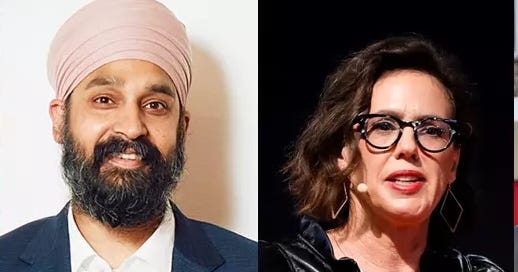Does morality depend on religiosity? Do you have to be religious to be moral?
I don’t think so. But about one-third of Americans do, at least according to Pew Research.
There’s also a counter-argument to be made about people who claim religiosity and do immoral things — fraud, abuse, hatred. Although I think religion at is best gives us firmament for ethical practice and behavior, I’m not sure religion and morality are as co-constitutive as we tend to think.
But what if we approach it differently, where we make our values the centerpiece of our religiosity? Might that give us better results?
The Dalai Lama has an idea to offer on these lines: “My religion is very simple. My religion is kindness.”
I expect to hear these kinds of things while teaching, especially when it’s in my courses on Buddhist histories or Indo-Tibetan Buddhism. But I don’t usually hear people saying things like this out in the world.
So imagine my surprise when, while hanging out at SXSW in Austin with a contributing editor for the Harvard Business Review, I heard her offer a very similar kind of insight. “Our religion is kindness.”
I love this framing, and it’s why I’m so excited to introduce to you a woman who I’ve become friends with over the years and have really come to admire. Amy Gallo is a workplace expert and best selling author of Getting Along: How to Work with Anyone (Even Difficult People). She's also the co-host of Harvard Business Review's Women at Work podcast and her advice has been featured in the New York Times, The Wall Street Journal, NPR, and many more. And most importantly, she’s a lovely human being who I enjoy hanging out with and learning from :)
I interviewed Amy for Wisdom & Practice, and in our conversation we explore the balance between having empathy for oneself and others as well as the importance of recognizing imperfections as a means to foster connection and resolve conflicts.
I’ll paste an excerpt from the episode with Amy below. To listen to our full conversation, please click here.
Amy Gallo: One of my jobs early on in my career was working at a needle exchange program in San Francisco, where IV drug users would bring used needles and exchange for clean ones. My very first night on the job, I was in the truck—we’d go from site to site and bring the supplies—and we pull up in San Francisco. My colleague opens the back of the truck, and there's a group of, uh, clients standing there. And I looked at them and thought: they’re human. It was the first thing that occurred to me. I had chosen to do this job. I wasn’t having this forced on me, right? I presumably wanted to help these people because they were human.
And then an interesting thing happened—I actually then not only saw the human in them, but I started to see the addict in everyone. Meaning, I would see a person on the bus in San Francisco, in a suit, and think: you might be an IV drug user, right? I would have someone serving coffee—you might be an IV drug user.
And I think that's a muscle that also needs to be exercised all the time. Because the more we try to emphasize the ways we're not like people, when those conflicts happen, they just immediately become tug-of-wars as opposed to an opportunity for connection.
And I mean, I just believe conflict and difficult conversations are one of the best opportunities for connection—and yet they often end up in disconnection.
Simran Jeet Singh: Yeah, you know, that reminds me of how when we put our heroes on pedestals and presume them to be perfect—and then we meet them and we’re so disappointed, which happens all the time, right? It’s happened to me so many times—but like, of course that's going to happen, because no one’s perfect.
Amy Gallo: Mm-hmm.
Simran Jeet Singh: And what that’s revealed to me is that the problem is not with them—it’s actually about my own expectations. And I want to sort of take that into how we think about the people we encounter in this world, where it’s almost like our bar for seeing people’s humanity is on the basis of perfection.
To listen to our full conversation on Wisdom & Practice, please click here.




